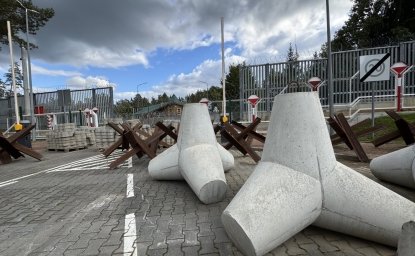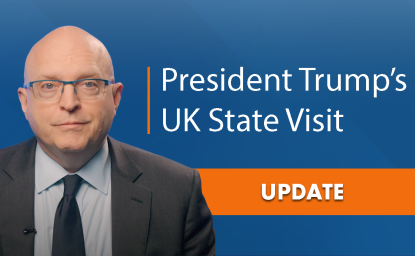The World is Changing, But Not Its Institutions
The international institutions that have guided world politics for over half a century are rapidly heading toward obsolescence and irrelevance, argues Wilson Center Fellow Charles Kupchan.
The international institutions that have guided world politics for over half a century are rapidly heading toward obsolescence and irrelevance, argues Wilson Center Fellow Charles Kupchan.
The international institutions that have guided world politics for over half a century are rapidly heading toward obsolescence and irrelevance. Many of these global and regional institutions were shaped soon after the end of World War II. Six decades have since passed, leaving these institutions woefully outmoded and struggling to remain legitimate and effective in a global landscape that bears little resemblance to that of 1945.
Although the task lacks the urgency of stabilizing Iraq and Afghanistan or resolving the Palestine-Israel conflict, the international community must make institutional reform a top priority. We are living in a moment every bit as momentous as 1815, 1918, or 1945, when a new geopolitical reality necessitated a new international architecture. Just as during these previous historical intersections, the institutional choices made today will shape the international system for decades to come.
As for the United Nations, the United States, Britain, France, the Soviet Union, and China may have merited a veto-wielding seat on the Security Council in 1945. But changes in the global balance of power make it difficult to contend that these countries deserve such a privileged position today.
Mahmoud Ahmadinejad and Hugo Chavez are hardly the leading statesmen of our time. At the UN General Assembly last month, they were true to form, delivering inflammatory and provocative speeches. Nonetheless, it is difficult to take issue with their calls for adjusting the composition of the Security Council to new power realities. As Ahmadinejad argued, "the present structures and working methods of the Security Council, which are legacies of the second world war, are not responsive to the expectations of the current generation . . . . As long as the Council is unable to act on behalf of the entire international community in a transparent, just and democratic fashion, it will neither be legitimate nor effective."
To his credit, Kofi Annan, who will soon step down as UN Secretary General, has overseen a broad effort to advance institutional reform. Expanding the Security Council was on the agenda, with Japan, Germany, India, and Brazil all leading contenders for membership. No consensus emerged, however, and although some important management reforms were implemented, the attempt to reconfigure the Security Council has for now lost momentum.
In contrast, the International Monetary Fund did decide last month to increase the voting weight of China, South Korea, Mexico, and Turkey, a small but important step toward making the IMF more representative and legitimate. But with geopolitics rather than loans on the line, it will be far more difficult to convince the UN to follow suit.
NATO is going through similar growing pains. The political rift that opened over the Iraq War made clear that transatlantic unity is not what is used to be. NATO is now fighting for its life in Afghanistan. Even if ample reinforcements are eventually forthcoming, it is by no means clear that the alliance will be able to defeat the Taliban insurgency and bring stability to the country.
NATO's predicament in Afghanistan and the global nature of today's security threats raise important questions about the future of the alliance. Should NATO become the go-to organization for today's main security challenges, perhaps dispatching forces to the West Bank and Darfur? Should the alliance, as some analysts have suggested, open its doors to all the world's democracies? As its membership and its missions increase, should it move away from decision making by unanimity, recognizing that the unity of purpose enjoyed during the Cold War days is gone for good? NATO may opt for a more modest and conservative future, but it must at least address these pressing questions.
The European Union faces similarly weighty questions about its future. Indeed, in the aftermath of the failure of the constitution, the project of European integration confronts perhaps its most significant crisis to date. Fueled by a right-wing, anti-immigrant brand of populism, the re-nationalization of political life is occurring across Europe, calling into question not only the union's future enlargement, but also its plans for making its governing institutions more effective and collective in character. Is the process of European integration losing momentum? Is it conceivable that the EU could backslide, perhaps abandoning its political aspirations and settling only for economic union? Such questions, unimaginable a few years ago, now warrant serious evaluation.
Other areas of the globe are less institutionalized than the transatlantic region, but they are nonetheless feeling the effects of tectonic geopolitical shifts. In East Asia, the United States has been at the center of a region-wide security architecture since the defeat of Imperial Japan. After the end of World War II, Washington effectively constructed a hub-spoke pattern of relationships with Japan, South Korea, and China.
Slowly but surely, the status quo in East Asia is eroding. China is on the move, seeking gradually to erect a new regional order with Beijing, not Washington, at the center. China's new enthusiasm for multilateralism is paying off, weaning its neighbors away from reliance on the United States. Japan has a new prime minister, the first to have been born after World War II. He wants his country to reclaim its national pride by restoring Japan's role as a "normal" power and revising Japan's "peace" constitution to allow for greater defense responsibilities and capabilities. Meanwhile, South Korea is distancing itself from Washington and pursuing its own rapprochement with North Korea. The United States is still a key player in the region, but all roads no longer run through Washington.
Dramatic change is also coming to the Middle East. The status quo has long been preserved by conservative Sunni regimes, as in Saudi Arabia and Egypt, often working in alliance with the United States. But a Shiite resurgence is sweeping the region as sectarian violence engulfs Iraq and Iran is further buoyed by Hizbollah's increased power in Lebanon. As Shiites assume leadership of the Islamic street, sectarian and Islamist passions may well be awakened throughout the region, threatening the stability of the conservative guardians of the status quo.
If right-wing populism is roiling Europe's waters, left-wing populism is upsetting the status quo in Latin America. Fidel Castro may be at the end of his career, but his mantle is being picked up by Chavez, Evo Morales, and others seeking to rally the more disadvantaged sector of the electorate around a program of economic nationalism, income redistribution, and anti-Americanism. Economic liberalization and trade integration with North America is giving way to an alternative vision of state-led growth and regional autonomy.
It is not just a change in the global distribution of power that is causing this upheaval in global institutions and regional orders. Globalization and the dislocations and inequalities that accompany it, as well as democratization and the unpredictable politics it produces, are also responsible for unleashing powerful forces of change.
Whatever their causes, the geopolitical changes afoot urgently require institutional adaptation and innovation. Neglecting this task risks not just a weakened UN or NATO, but the potential breakdown of the global system's institutional foundations.
Charles A. Kupchan is a Professor of International Affairs at Georgetown University and a Fellow at the Council on Foreign Relations and the Woodrow Wilson International Center for Scholars.


